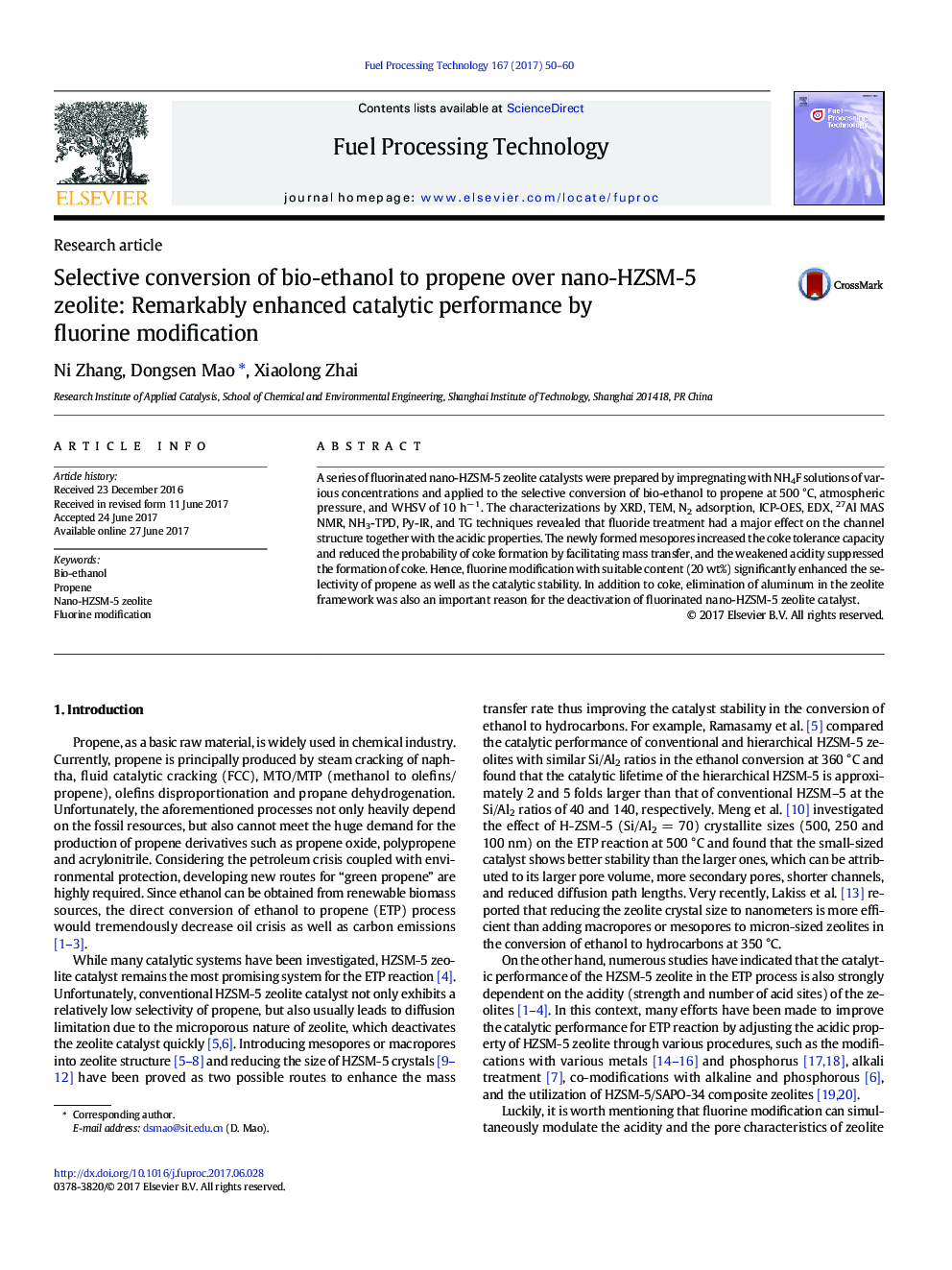| Article ID | Journal | Published Year | Pages | File Type |
|---|---|---|---|---|
| 6476224 | Fuel Processing Technology | 2017 | 11 Pages |
â¢Selective conversion of bio-ethanol to propene was tested on F modified nano-HZSM-5.â¢F modification increased external area, mesoporous volume and pore diameter of HZSM-5.â¢F modification decreased both the amount and strength of the acid sites of HZSM-5.â¢F modification greatly improved the propene selectivity and catalyst stability.
A series of fluorinated nano-HZSM-5 zeolite catalysts were prepared by impregnating with NH4F solutions of various concentrations and applied to the selective conversion of bio-ethanol to propene at 500 °C, atmospheric pressure, and WHSV of 10 hâ 1. The characterizations by XRD, TEM, N2 adsorption, ICP-OES, EDX, 27Al MAS NMR, NH3-TPD, Py-IR, and TG techniques revealed that fluoride treatment had a major effect on the channel structure together with the acidic properties. The newly formed mesopores increased the coke tolerance capacity and reduced the probability of coke formation by facilitating mass transfer, and the weakened acidity suppressed the formation of coke. Hence, fluorine modification with suitable content (20 wt%) significantly enhanced the selectivity of propene as well as the catalytic stability. In addition to coke, elimination of aluminum in the zeolite framework was also an important reason for the deactivation of fluorinated nano-HZSM-5 zeolite catalyst.
Graphical abstractDownload high-res image (282KB)Download full-size image
